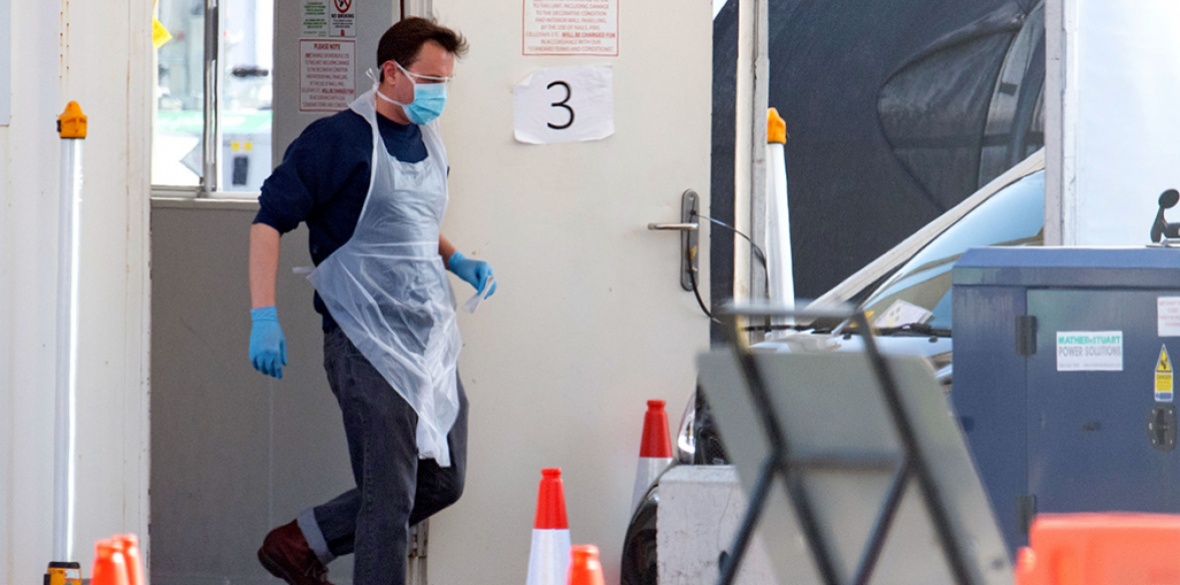“REMEMBER the dead, fight like hell for the living.” The solemn pledge made each Workers’ Memorial Day by trade unionists is especially poignant amid a global pandemic.
Workers are dying. Workers on the front lines of the National Health Service, in our care homes, staffing our shops or keeping public transport running, delivering goods and post or looking after the children of other key workers in our schools.
Workers have been exposed to catching the Covid-19 virus because non-essential workplaces have not all been closed. And workers whose work is essential have been put in harm’s way because managers have not adapted workplaces properly to adhere to social distancing guidelines.
On a still greater scale, workers’ lives have been risked — and lost — because they have not been provided with proper personal protective equipment (PPE), even when their jobs involve treating infected people in our hospitals.
TUC leader Frances O’Grady is right to describe this failure as “grotesque” and right to lay it at the door of ministers.
The government ignored warnings from the World Health Organisation and from China, where the coronavirus first struck, and failed to use precious weeks to prepare.
It was late in establishing a lockdown and then failed to take appropriate measures to address continuing problems such as overcrowding on public transport.
It has repeatedly sought to blame the public and even health workers for the lethal consequences of its own decisions.
Before coronavirus, the government had years in which it recognised and even tested scenarios for dealing with a global pandemic.
Some claim authorities were unprepared because they had game-played outbreaks of influenza, which does not spread in the same way as coronavirus.
Yet ministers did not bother to act on the central findings of the 2016 pandemic drill — that the NHS would be rapidly overwhelmed and that stocks of PPE would be rapidly exhausted. Had they done so, fewer workers would have died this year.
No wonder journalist John Pilger has called for then health secretary Jeremy Hunt, who also presided over a 40 per cent reduction in PPE stocks, to be prosecuted for criminal negligence.
Such demands are not mere point-scoring but would help end a culture of impunity for the elite that allows them to play fast and loose with our safety.
Backed up by a corporate media whose devotion to private profit easily eclipses its concern for human life, successive governments have been able to turn a basic and vital demand — that people are not put at unnecessary risk while doing their jobs — into a joke, “health and safety gone mad.”
In 2012 David Cameron complained that health and safety legislation was “an albatross around the neck of British businesses” and vowed to “kill off the health and safety culture for good.”
Two years later he was being lauded for his “bonfire of the building regulations,” a phrase that sticks in the throat following the Grenfell Tower disaster — though as the Fire Brigades Union has meticulously documented, decades of deregulation by both Tory and Labour governments set the scene for that tragedy.
Like Grenfell, the failure to supply workers with essential PPE was preventable, and must not be depoliticised.
When we observe a minute’s silence today for the workers who have perished as a result, we should commit in their memory to ensure people are not forced to risk their lives to do their jobs in future.
That entails sweeping changes in the world of work, to redress the balance of power between the worker and the boss.
It requires Britain’s repressive trade union legislation to be overturned, to ensure trade unions have access to workplaces and the ability to negotiate appropriate working conditions for each sector through collective bargaining.
Ministers are not going to offer us such reforms. Only huge industrial and political pressure from our movement will carry them forward.












